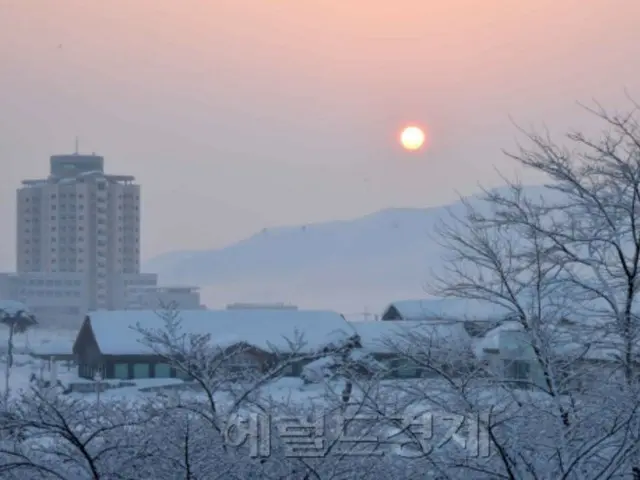The South Korean Ministry of Unification called it an "inhumane act that violates the wishes of separated families" and called for an immediate halt to the removal.
Separated families are families who were separated between South and North Korea as a result of the division of the Korean Peninsula into North and South Korea. After World War II, the Korean Peninsula was divided into two parts by the Allied Powers' policy, and the 38th parallel was separated from the rest.
The border was occupied by the US Army on the south side and the Soviet Army on the north side. Initially, travel was possible across the 38th parallel, but during the Cold War, under the strong influence of the US and the Soviet Union,
The two Koreas each began to build new nations, and the conflict between them gradually deepened. In May 1946, however, travel across the 38th Parallel was banned, which led to the separation of families.
In 1948, the Republic of Korea (South Korea) and the Democratic People's Republic of Korea (North Korea) were established, creating two countries on the Korean Peninsula. In 1950, the Korean War broke out.
Many families were separated due to the advance and retreat of the war situation and evacuation. Although a ceasefire was reached in 1953, the division of North and South Korea was definitive, and many families, estimated at 10 million people, were separated between North and South Korea.
In South Korea, millions of people were left behind as “displaced people” who could not return to their hometowns in North Korea. For humanitarian purposes, South and North Korea began a program to reunite separated families in 1985, and in 2000,
After the summit, talks were in full swing. However, they were intermittent under South Korea's conservative administration, and were suspended in 2015 when North-South relations worsened due to North Korea's nuclear tests and ballistic missile launches.
In 2018, a summit was held between then South Korean President Moon Jae-in and North Korean leader Kim Jung Eun, and the two sides agreed to resume the reunion of separated families in August of the same year.
The Panmunjom Declaration, signed by the two leaders at the summit, also specified the implementation of a reunion program for separated families as an "effort to urgently resolve the humanitarian issue."
The reunion event resumed after a hiatus of about two years and ten months. It was a symbolic event of North-South reconciliation, and drew attention at the time. Participants from the South Korean side, including separated families, crossed the Military Demarcation Line into North Korea and arrived at the Kumgangsan Hotel.
However, since then, inter-Korean relations have continued to deteriorate, and the authorities of North and South Korea are no longer carrying out reunions of separated families.
The separated families are aging, and a survey conducted by the Ministry of Unification last year of 5,000 separated family members living in South Korea revealed that
More than 75% of people said they had not been able to confirm whether their family members in North Korea were alive or dead. The "Reunion Center for Separated Families" is a facility located in the Mount Kumgang tourist area in North Korea, near the border between North and South Korea, and is a place where separated families can be reunited.
It was built in 2008 with funding from the South Korean government with the aim of making it a regular event. It was first used in September 2009 when a reunion event for separated families was held, and has been used a total of five times for the event to date.
On the 13th, the Ministry of Unification announced that it had confirmed that North Korea had unilaterally removed the meeting place. North Korean leader Kim Jong Un has declared his relationship with South Korea as a "hostile warring nation" at the end of 2023.
Last year, North Korea blew up roads and railways between North and South Korea on the North Korean side of the military demarcation line, and is also moving forward with the construction of a wall along the military demarcation line with South Korea.
The removal of the reunion center is seen as part of this policy. On the 13th, South Korea's Ministry of Unification released a statement saying, "In response to North Korea's unilateral removal of the Mount Kumgang Reunion Center, which was established by agreement between the two Koreas,
"We express our deep regret and regret," it said. It went on to denounce the move, saying, "The removal of the rendezvous center is an anti-humanitarian act that tramples on the wishes of separated families and is a serious violation of our national property."
"The unilateral illegal act of the North Korean government cannot be justified for any reason. The North Korean authorities must bear all responsibility for this incident," the South Korean government said.
He indicated that he would consider taking necessary measures, such as legal action and cooperation with the international community, in the future.
2025/02/14 15:19 KST
Copyrights(C)wowkorea.jp 5

